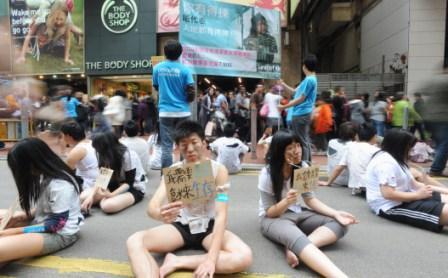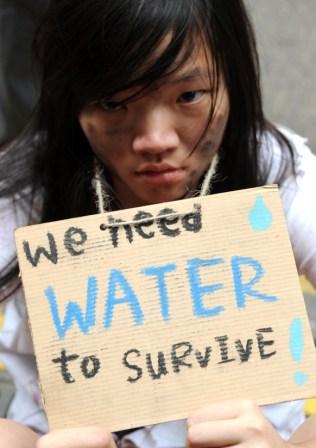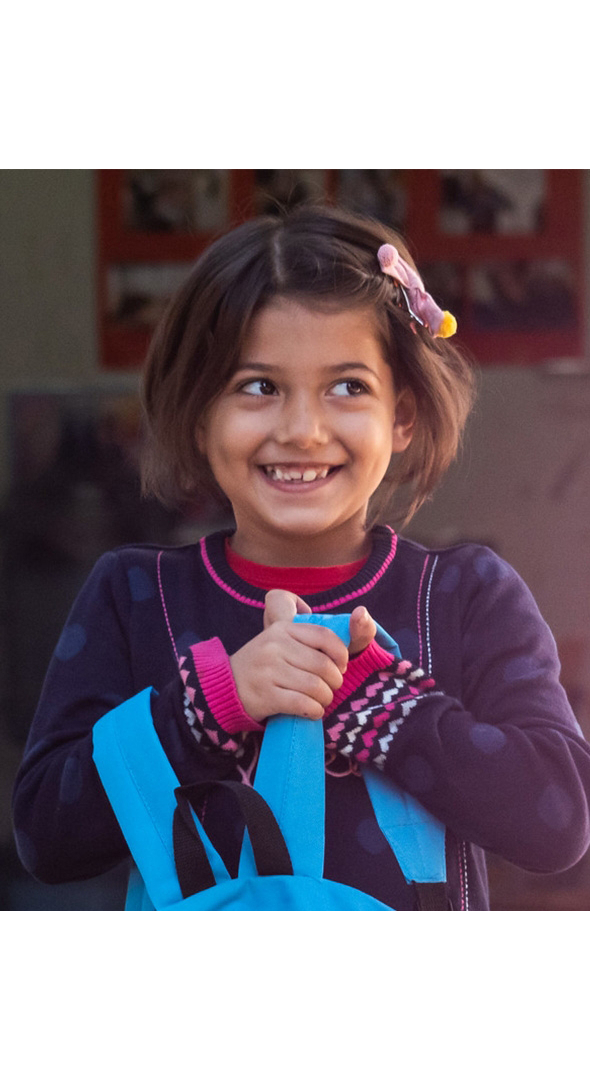Radiation leak in Japan poses threats to water resources UNICEF Young Envoys Club “flashes” to call for a water saving lifestyle
2011-03-21
HONG KONG, 21 March 2011 – “You have a choice. It doesn’t mean others do, too!” Water safety has become ever so concerning since the fear of radiation leak loomed over Japan and its neighboring regions following the devastating double catastrophe of earthquake and tsunami. As tomorrow, 22 March, is the United Nations (UN) designated World Water Day, a group of post-90’s initiated a “Splash” Mob Campaign in the heart of the busy Causeway Bay.
 |
Through their performance of flash mob and still acting, they hope to call for public awareness of water safety and supply for children in Japan and developing countries, advocate a water saving lifestyle and raise public concern about the uneven distribution of water resources.
According to the official website of the UN World Water Day, “Investments in infrastructure have not kept up with the rate of urbanisation, while water and waste services show significant underinvestment. The central problem is therefore the management of urban water and waste. Piped water coverage is declining in many settings, and the poor people get the worst services, yet paying the highest water prices.” |
|
Another planner, Harrison Chung pointed out, “We’ve to bear in mind that water scarcity is no longer the major concern but uneven distribution of water resources in result of the rapid urbanisation of the world’s population while 93% of the urbanisation occurs in poor or developing countries.” He also encourages us all to bear the responsibilities of a world citizen and lead a water saving life. Here are some water saving tips he suggested:
|
 |









